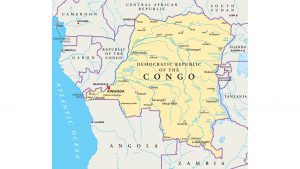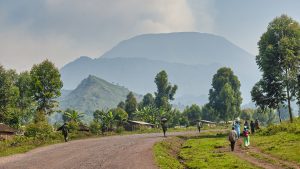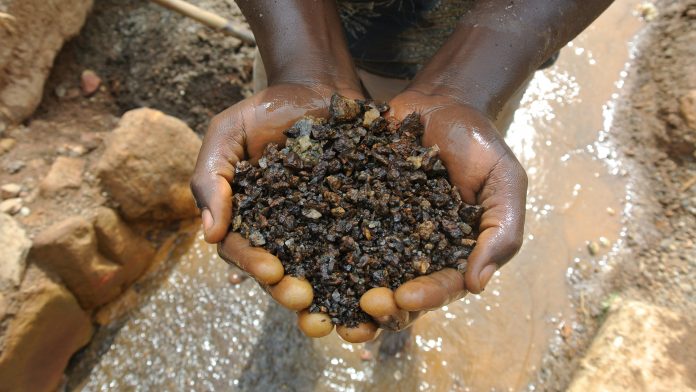RESOLVE’s Tommie-Lynne Enright and Taylor Kennedy outline the Public-Private Alliance’s progress on responsibly sourcing critical minerals.
In 2009, leading civil society organisations like The Sentry (then the Enough Project) and Global Witness began warning the world about the lack of visibility and sustainability in mineral supply chains. The demand for minerals in electronics supply chains was fuelling conflict in the eastern provinces of the Democratic Republic of the Congo (DRC). Rebel groups and militias funded their activities through violent and coercive exploitation of civilians involved in artisanal and small-scale mining (ASM), especially of tin, tantalum, tungsten, and gold (3TG).
Global civil society and an upswell of students and other activists called for companies to ensure that their supply originated from mines not linked to conflict. 2010 research by RESOLVE, in partnership with the Global e-Sustainability Initiative (GeSI) and the Electronic Industry Citizenship Coalition (EICC), found that – in most cases – it was impossible to know the mine of origin, given the opaque nature of these supply chains, with minerals changing hands several times before ending up in phones and computers.
Without the ability to know whether minerals originated in peaceful parts of the country or from mines controlled by armed groups, and since minerals were often smuggled to neighbouring countries before export, several companies chose to disengage from the region entirely. However, widespread disinvestment from the region would mean a loss of livelihood for millions of civilians who relied on ASM as their primary source of income. Contrary to abandoning the DRC, the moment demanded innovative solutions to enhance transparency and due diligence, as well as increased engagement from global stakeholders to support the conditions for ethical and sustainable supply chains.
Thus, the U.S. Department of State, U.S. Agency for International Development (USAID), and the International Conference of the Great Lakes Region (GLR) – along with a contingent of 29 civil society organisations, electronics companies, and industry associations, co-founded the Public-Private Alliance for Responsible Minerals 11 Trade (PPA), which formally launched in late 2011.
About the PPA
Today, PPA member organisations span government (in addition to the State Department, USAID, and ICGLR, the U.S. Department of Labor joined in 2017), international NGOs, academic institutions, and companies across the electronic, jewellery, automotive, and aerospace sectors—and the Organisation for Economic Co-operation and Development (OECD) participates as a formal observer.
Over the past 11 years, the PPA provided early support to the first traceable, conflict-free artisanal gold supply chain from the DRC, convened regional and international stakeholders to promote alignment and co-ordination, provided grants to Congolese organisations working to mitigate human rights abuses, tested tools and models for enhanced upstream due diligence and reporting, and more.

Providing solutions to the challenges facing ASM communities
The PPA’s interventions often target the fundamental conditions underpinning the prominent challenges that local ASM communities face. For example, in 2018 the PPA commissioned research on the role of financial institutions in the responsible minerals trade from conflict-affected and high-risk areas (CAHRAs). The findings captured issues and maps of financial flows in the 3TG sectors, barriers to financial access for artisanal miners, and potential design concepts aimed at overcoming these.
Informed by this research, the PPA contracted one of the largest commercial banks operating in the DRC, Trust Merchant Bank (TMB), to conduct a pilot to expand the ability of legitimate actors in the ASM sector and surrounding communities to access legal finance. While implementation of the pilot is contingent upon technical and security factors still in flux, partial PPA funding and significant investment by TMB propelled the bank’s development of new mechanisms for assessing risk and conducting due diligence within the ASM sector, where the broader financial services industry has, traditionally, been unwilling to engage.
The PPA also prioritises and seeks to improve social considerations within artisanal mining. Last year, through a competitive process, the PPA awarded a grant to IMPACT, in partnership with Synergy, to research models for ASM governance structures (e.g., cooperatives), including those which have successfully addressed or avoided issues of elite capture and social inequities that are often perpetuated within these structures in the DRC.
IMPACT and Synergy’s research engaged diverse focus groups to clarify the distinct challenges artisanal miners face within the DRC’s legal and regulatory context. Interviews with additional stakeholders, including women and Indigenous peoples who are often excluded from management structures, also produced insights that will inform recommendations that policymakers, civil society, and businesses can take to address these challenges, including how the PPA can advance awareness and implementation of potential solutions towards advancing gender equity alongside formalisation efforts.

Recent actions and future goals
Most recently, the PPA hosted the first-ever Data for Impact Symposium to profile tools, models, and other approaches that showcase how data collection can be leveraged to enhance positive local socioeconomic impacts and efficacy of due diligence efforts. Six speakers shared the latest findings on corporate conflict minerals disclosures, mechanisms for due diligence data collection and management, innovative financial access models for artisanal miners, and more. The event marked an effort to promote information-sharing and facilitate connections among members who are engaged in these topics outside the auspices of PPA. Recordings and supplemental resources will soon be made available to the public in English and French to further amplify efforts to leverage data for impact.
Ahead of August 2022, the conclusion of the PPA’s mandate, members enthusiastically agreed to extend the partnership into 2027. With this renewed commitment came the opportunity to reflect on the PPA’s unique strengths and adapt to shifting trends in responsible sourcing and supply chain sustainability. The global transition to cleaner forms of energy production and emerging issues and gaps pertaining to increasingly in-demand critical minerals (e.g. cobalt, lithium, nickel, etc.) needed to support that transition stood out to members as a priority area for expansion. And with new minerals come new, impacted sourcing geographies. PPA members are keen to apply lessons learned in the GLR to other CAHRAs in the interest of minimising negative social and environmental impacts and maximising community benefits where minerals are produced.

Though the challenges are complex, the PPA has empowered members to take collective action at a greater scale than any one organisation could have achieved on their own. After over a decade of proven results, the PPA continues to identify and introduce new methods to directly effect on-the-ground-change while increasing its total impact. In this next phase, members of this vital platform for bolstering progress on responsible sourcing look forward to building on past experience and successes as the PPA addresses timely challenges in pursuit of sustainable and ethically and economically sound mineral supply chains.
The PPA is actively seeking to expand membership. Companies at various levels of the supply chain, global and local civil society organisations, and academic groups or institutions engaged in a relevant topical focus are encouraged to contact RESOLVE ppa@resolve.ngo for further information.
Tommie-Lynne Enright
Program Associate
RESOLVE
https://www.linkedin.com/in/tommie-lynne-enright-9b7088147/
Taylor Kennedy
Director of Organizational Impact and Senior Expert
Sustainable Resources Program
RESOLVE
www.resolve.ngo
https://www.linkedin.com/in/taylorkennedy/
Please note, this article will also appear in the eleventh edition of our quarterly publication.









